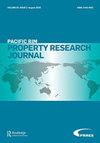Forestry treaty claims in Aotearoa-New Zealand: bicultural significance and socio-economic impact
IF 0.3
Q3 Economics, Econometrics and Finance
引用次数: 2
Abstract
Abstract The economic importance of forestry as a significant industry in Aotearoa is easily established; but to Māori it is demonstrably even more fundamental whereby a broader set of principles other than those based on individual property rights and economic values are solidly embraced. Manifestation of such importance is also revealed in forestry claims made under Treaty of Waitangi and related legislated processes facilitating recompensing actions and omissions by the Crown since 1840. However, the redress amount provided under any Treaty Deed of Settlement tells only part of the story in terms of property settlement and compensation. The more complete picture is that land gifting including sites of cultural and spiritual significance, and recovery of accumulated rentals for Crown Licensed Forests may also included as part of the final redress – distorting the apparent compensation amount paid. Notwithstanding, total compensation packages typically represent only a fraction of the current market value of dispossessed land. This is an observational paper establishing a conceptual framework, examining the proposition that contemporary Māori are likely to balance economic objectives with social, cultural and spiritual values – even though the embedding of these principles (especially those relating to environmental protection) are still held to strongly.新西兰奥特罗阿的林业条约主张:双重文化意义和社会经济影响
摘要林业作为奥泰罗阿重要产业的经济重要性很容易确立;但对毛利人来说,除了基于个人财产权和经济价值观的原则之外,更广泛的一套原则得到了坚定的支持,这显然更为根本。这种重要性也体现在根据《怀唐伊条约》提出的林业索赔以及自1840年以来有助于补偿王室作为和不作为的相关立法程序中。然而,根据任何《条约解决契约》提供的赔偿金额告诉了财产解决和赔偿方面的部分情况。更完整的情况是,包括具有文化和精神意义的地点在内的土地赠与,以及收回官方许可森林的累计租金,也可能被视为最终补偿的一部分,从而扭曲了支付的明显赔偿金额。尽管如此,总的补偿方案通常只代表被剥夺土地当前市场价值的一小部分。这是一篇建立概念框架的观察性论文,研究了当代毛利人可能在经济目标与社会、文化和精神价值观之间取得平衡的命题——尽管这些原则(尤其是与环境保护有关的原则)的嵌入仍然得到了有力的支持。
本文章由计算机程序翻译,如有差异,请以英文原文为准。
求助全文
约1分钟内获得全文
求助全文

 求助内容:
求助内容: 应助结果提醒方式:
应助结果提醒方式:


